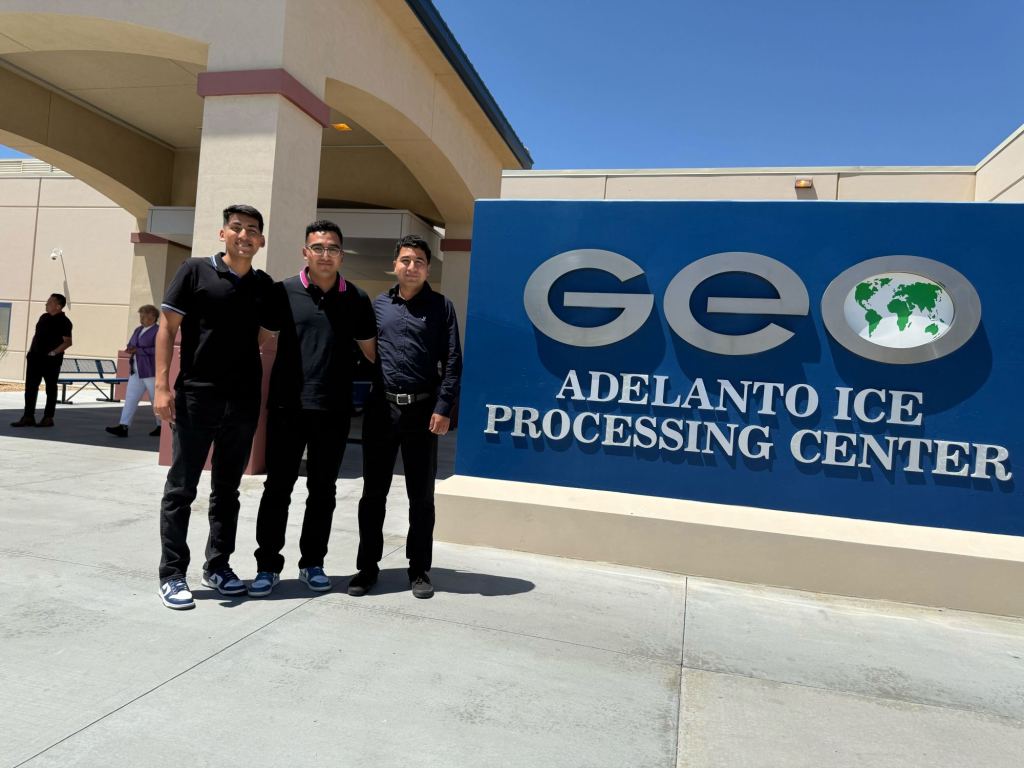Narciso Barranco, the 48-year-old Tustin landscaper and father of three U.S. Marines who was punched and detained by federal immigration agents last month — sparking a nationwide outcry — will be released on bond from the Adelanto U.S. Immigration and Customs Enforcement processing center on Friday afternoon, July 11, a supporter said.
Orange Councilmembers Arianna Barrios and Ana Gutierrez and Bishop Kevin Vann of the Diocese of Orange joined his family for his bond hearing at the center in San Bernardino County’s High Desert.

“Today was a good day in this new battle for civil rights, due process and humanitarian principles,” Barrios said. “I was so impressed that Bishop Vann made the long drive out to the desert to bear witness and bless this special family.
“Mr Barranco will be released on bond sometime tomorrow (Friday) afternoon, God willing! He can remain free until mid-August, where he will have another hearing to try and adjust his status to parole-in-place based on the fact that his wife is a U.S. citizen and his three American-born sons are active-duty U.S. military,” she said.
Video posted on social media shows Barranco getting pinned to the ground and repeatedly punched, then pepper sprayed, by at least one masked, armed federal immigration agent in Santa Ana in late June. The footage gained nationwide media attention and highlighted community concerns over immigration enforcement.
U.S. Customs and Border Protection said Barranco attacked agents with a weed whacker, went into traffic and refused to comply with them. “Show the full story,” the agency posted on X with an 11-second clip that shows Barranco swinging the weed whacker in the direction of approaching agents but not hitting them.
His son, Alejandro Barranco, has said his father moved to Orange County in the ’90s and has been working as a landscaper.
His father had been applying for parole-in-place, which can be granted to family members of active-duty military members who are without legal status; it gives them permission to stay in the U.S. for a while, usually a year, and can be extended, Alejandro Barranco said.
Originally Published:



